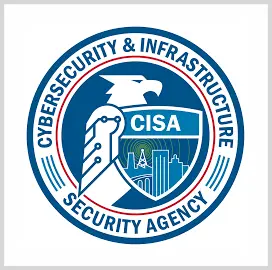The Cybersecurity and Infrastructure Security Agency has set three focus areas and six priorities for the Joint Cyber Defense Collaborative in 2024.
CISA on Monday published its 2024 objectives for JCDC, which includes raising its cybersecurity baseline, combating advanced persistent threats — or APTs — and anticipating the risks faced by emerging technologies.
JCDC will prioritize defense against APT actors supported by China to disrupt U.S. critical infrastructure. The public-private alliance will work with private sector partners and other agencies to detect and respond to malicious APT activity, such as living off the land techniques.
Other main objectives for this year are updating the National Cyber Incident Response Plan to reflect changes in the cyber operations and policy and to maximize resources and partnerships to reduce the impact of ransomware and data extortion on critical infrastructure.





